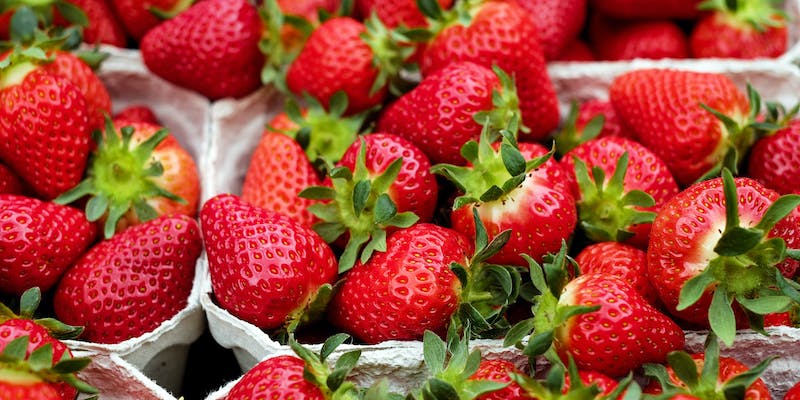Prebiotics are non-digestible fibers found in certain foods. They critically nourish the beneficial bacteria residing in our gut and play a pivotal role in digestive health. This is an essential concept to understand as we explore the intricacies of prebiotics. The article illuminates the advantages, and various types of prebiotic foods, and explores the symbiotic relationship between prebiotics and probiotics.
1. Exploring the Benefits of Prebiotics
Incorporating prebiotics into your diet offers manifold advantages. Firstly, they provide a potent source of food for probiotics, fostering the growth and activity of these beneficial microorganisms in the gut. Further to this advantage, enhanced mineral absorption is another benefit of their use. This includes particularly calcium and magnesium which contributes significantly to improved bone health. Prebiotics actively regulate blood sugar levels, thus proving a valuable asset in diabetes management. Moreover, and this is crucial to note, their support of a robust immune system underscores the extensive health benefits prebiotics provide.
Delving deeper into their immune-boosting properties, prebiotics incite the production of short-chain fatty acids (SCFAs). These SCFAs exert anti-inflammatory effects within the gut; this action not only assists with immune response but also extends its influence on overall health. Recent studies further intimate a potential connection between prebiotic consumption and mental well-being. They propose that these substances could influence mood and cognitive function by directly impacting the gut-brain axis. Incorporating prebiotics into your daily dietary regimen underscores the holistic benefits of this action, as it directly addresses the intricate connection between gut health and mental well-being.
- Consideration: It's advisable to gradually introduce prebiotic-rich foods into your diet to allow your digestive system to adapt, reducing the likelihood of temporary discomfort.
- Caution: While prebiotics are generally beneficial, individuals with certain digestive conditions, such as irritable bowel syndrome (IBS), should consult a healthcare professional before significantly increasing prebiotic intake.
2. Identifying Prebiotic Foods
One must familiarize themselves with the foods containing these valuable compounds to harness the benefits of prebiotics. High-fiber options such as chicory root, garlic, onions, and leeks, even bananas qualify. By incorporating these into your daily meals, you can not only promote a balanced microbiome but also nourish beneficial gut bacteria for an overall thriving system. Diversify your diet with prebiotic-rich options. This will pave the way for sustained digestive wellness.

Beyond the customary sources, we must underscore that whole grains such as oats and barley harbor prebiotics. These grain types furnish not only fiber but also a spectrum of nutrients that bolster general health. Moreover, fruits like apples and berries abound with polyphenols. Compounds capable of behaving as prebiotics, thus fostering a diverse yet resilient gut microbiome. By actively exploring a variety of foods rich in prebiotics, you can adopt a more comprehensive approach to nurturing your gut health. This method takes into account the unique needs of your body, an essential consideration.
- Consideration: When incorporating prebiotic foods, gradually increase the intake to allow your digestive system to adapt.
- Caution: Individuals with fructose malabsorption may need to be cautious with certain prebiotic-rich foods like onions and garlic.
3. Unveiling the Synergy - How Prebiotics Work with Probiotics?
Prebiotics furnish nourishment for gut bacteria, while probiotics, being live microorganisms, bestow health advantages when consumed in sufficient quantities. A crucial understanding of the synergy between prebiotics and probiotics maximizes their impact on gut health. Prebiotics function as a fertilizer that stimulates the growth and activity of probiotics within the gastrointestinal tract. The synergistic relationship fosters a harmonious environment, bolsters the microbiome's balance, and as a result, enhances overall well-being.
The research delves into the intricacies of this symbiotic relationship, suggesting that specific prebiotics can selectively enhance particular strains' growth among probiotics. This selectivity permits a more targeted approach to promote beneficial bacteria's proliferation, thereby contributing to an effective and personalized strategy for gut health. Moreover, it influences metabolic processes and modulates inflammation. Systemic health may also benefit from the synergy between prebiotics and probiotics outside the gastrointestinal tract. When we embrace the holistic perspective that prebiotics and probiotics work in tandem, it opens new avenues to optimize health beyond merely digestive benefits.
- Noteworthy Information: Fermented foods, such as yogurt and kefir, provide both prebiotics and probiotics, offering a double benefit for gut health.
- Fact: The human gut harbors trillions of microorganisms, collectively forming a complex ecosystem known as the gut microbiota.
4. Optimizing Gut Health through Prebiotics and Probiotics Integration

Consider integrating prebiotic-rich foods into your diet, in conjunction with probiotic supplements or fermented foods. This strategic approach may optimize gut health. The combined effort of prebiotics and probiotics contributes to a flourishing microbiome. Research links it not only to improved digestion but also to strengthened immunity, and even enhanced mental well-being. As you begin your journey towards nurturing optimal gut functionality, reflect upon the symbiotic nature of these two elements. They work harmoniously, creating a foundation for enduring health.
Alongside dietary strategies, regular physical activity crucially supports gut health through its link to a more diverse and resilient gut microbiome. This underscores the interconnectedness of overall well-being. Further enhancing both diversity and functionality within the gut microbiota is possible by ensuring an adequate intake of polyphenol-rich foods, such as green tea or dark chocolate, which complements prebiotics' and probiotics’ effects. Thus, underlining their significant role in maintaining optimal gastrointestinal balance. A thriving gut and overall vitality set the stage for our holistic approach, which embraces nutrition, exercise, and lifestyle choices.
- Consideration: Consult with a healthcare professional before starting any probiotic supplements, especially if you have underlying health conditions.
- Caution: Excessive use of antibiotics can disrupt the balance of gut bacteria, underscoring the importance of judicious antibiotic use.
Conclusion
Conclusively, the realm of prebiotics indeed harbors a significant key. It unlocks the potential for an enhanced gut and overall well-being. By grasping their benefits, discerning foods rich in prebiotics, and then understanding their synergy with probiotics, you arm yourself to make informed choices that significantly affect your digestive health. As you traverse through this world of all things 'prebiotic', may knowledge about its importance steer you towards holistic wellness.







